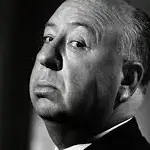"New World" is often regarded as a natural extension of the undercover theme seen in "Infernal Affairs," drawing frequent comparisons to "The Departed" series. Despite these high-quality predecessors, the Korean film industry has once again shown its innovative spirit. "New World" delves into the perilous world of undercover agents, adding a layer of complexity by exploring the identity crises faced by its characters, particularly within the backdrop of internal gang rivalries for control.
The film's character dynamics bear a clear influence from Hong Kong cinema, portraying a stark contrast between good and evil. It boasts intense action sequences, psychological warfare, and a meticulously crafted narrative that prioritizes both storytelling excitement and commercial entertainment value.

One major innovation in "New World" is its complete immersion in darkness, creating a new world. For example, one might imagine that a tragic undercover agent could rise to prominence, but whether or not they can complete their mission is secondary. However, most writers and directors either worry about people's sense of justice or find it difficult to convince them through reasoning. As a result, attempts at such breakthroughs are rare.
Reflecting on Jung Chung's initial introduction in "New World," where he meets Lee Ja-sung at the airport, his demeanor is flashy and frivolous. Initially, he wears sunglasses to conceal his true identity, then adopts a silly and humorous persona. These actions might lead others to perceive him as a fool who relies on his brothers' loyalty for success. However, when faced with Lee Ja-sung, Jung Chung exhibits trust, respect, and extreme politeness.
The brilliance of "New World" lies in the stark contrast between the characters' initial personalities and their eventual fates. If this foreshadowing of change in their personalities is not executed well, it would be challenging to sustain the story's momentum. The audience can easily envision the dynamics between Jung Chung and Lee Ja-sung themselves. Furthermore, repeated body language indicates that Jung Chung has ample reason to betray Lee Ja-sung, including the possibility of a love that transcends mere brotherhood.

The rise and fall of Jung Chung in "New World" is so dramatic, from confronting the police to clearing undercover agents, from being scared in the parking lot to killing there. His sudden burst of brutality and ability to take on many opponents at once is surprising, shocking, and unexpected. This character has transformed from one-dimensional to multi-dimensional, becoming more three-dimensional. The audience will also transition from being surprised by "how could he do this" to pondering "why did he do this."
"New World" obviously exaggerates Jung Chung's heroic performance, which is also the overall style and tone of the movie. Jung Chung cannot be unaware of the consequences of letting Lee Ja-sung go, yet he chooses self-destruction to fulfil Lee Ja-sung's desires, advising him to be ruthless and become another version of himself. Lee Ja-sung's transformation is not premeditated; he has been struggling with the pain of being an undercover agent and is on the brink of collapse. More accurately, he is pushed to his final position by the circumstances, and it is all because of Jung Chung that he can take that crucial step and push forward.

In terms of gangs, "The New World" features four categories of characters with rich layers. Jung Chung is the ruthless one who doesn't wear his bad intentions on his face. Lee Joong-gu is the intimidating one who does. The old guys without any abilities, led by the second-in-command and a few other old fools who are good at reading the atmosphere, are just cannon fodders. The tragic undercover cops, including Lee Ja-sung and other unfortunate members, reveal that there's no way out for undercover work - unless they become criminals themselves. Thinking back to the opening scene where Lee Ja-sung and his men interrogate Director Choi about whether he's working for the police, it's also extremely ironic. Just like Lee Ja-sung knows that the police are using him as a tool, he still plays the role of both the killer and the killed.
Unlike the vivid portrayal of gangs, the police in the film are shown in a dim light, lacking ability and struggling. As for police secrets, money talks. In the world of "The New World," the power of the mafia is overwhelming, completely dominating the game's rules. "The New World" also doesn't leave an open ending. If you want to play, play to the end. It's chilling.









Share your thoughts!
Be the first to start the conversation.